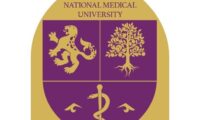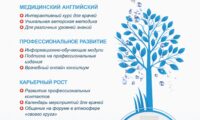Received: 24.11.2023 Accepted: 01.02.2024 Published online: 29.02.2024
UDC: 614.2
DOI 10.53511/PHARMKAZ.2024.79.83.010
Kozhabek Lyaila
Al-Farabi Kazakh National University, Almaty, Kazakhstan
THE DANGERS OF ENERGY DRINKS TO THE HEALTH OF YOUNG PEOPLE
Resume: This study has conducted a systematic review of the dangers of energy drinks (EDs) to the health
of young people. 10 peer-reviewed articles published within the last five years were identified after careful
screening of the search results in different databases. One major theme was apparent from the systematic
review: energy drink consumption has adverse impacts on the health of young adults. The dangers of EDs
manifest in form of reduced sleep, missed breakfasts, increased blood pressure and heart rate, cardiovascular
issues, mental health problems, and oral health. A large proportion of young adults are unaware of the danger
of energy drinks, and only associate them with improved performance. Public health initiatives should aim
to educate the youth about the adverse impacts of EDs. Companies should also practice transparency in
labeling with appropriate instructions for the right age of use.
Research Aims. What are the dangers of energy drinks to young people’s health
Methods. This research employed a systematic review of clinical articles which contained information answering
the research question. A search was conducted on EBSCOhost, Google Scholar, and Gale using the keywords,
“energy drinks” and “the health of young people.” This study categorized young adults as teenagers and
the youth aged 10-25 years.
Results. Adolescents prone to consuming large amounts of energy drinks are most likely to demonstrate
emotional problems, such as anxiety, stress, depression, and nervousness.
Conclusion. Overall, young adults face significant risks to their mental, dental, emotional, physical, and
behavioral health due to using EDs. Oral health is affected, as EDs reduce the pH level of the saliva. High
acidity in oral cavities is associated with various dental issues. Emotional and behavioral problems mediated
by reduced sleep and missed breakfast are one of the major impacts of ED consumption. Moreover, EDs
affect the blood pressure and heart rate by causing them to rise. Sweetened energy drinks will increase
blood glucose and insulin levels. Therefore, public health initiatives should aim to increase education and
awareness about the dangers of energy drinks.
Keywords: Energy drinks, systolic and diastolic pressure, sleep, mental health, saliva pH
СПИСОК ЛИТЕРАТУРЫ
1 Жураховская Д.В., Лоскутова Е.Е., Виноградова И.А. Маркетинговый анализ фармацевтического рынка нестероидных противовоспалительных
препаратов на региональном уровне // Современные проблемы науки и образования. – 2014. – № 2. –С. 628.
2 Иорданишвили А.К., Гук В.А. Особенности личностного реагирования на болезнь при патологии пародонта // Пародонтология. – 2016. – Т. 21, №
4 (81). – С. 32-36.
3 Каратеев А.Е. Модификация традиционных НПВП как метод повышения их безопасности и удобства применения // Русский медицинский журнал.
-2015. – Т. 23, № 7. – С. 392-398.
4 Каршиев Х.К., Робустова Т.Г., Музыкин М.И., Иорда-нишвили А.К. Оценка степени тяжести течения осложнённых форм острой одонтогенной
инфекции. Вестн. Рос. воен.-мед. акад. 2017; 4(60): 67-71.
5 Клинические рекомендации «Хронический болевой синдром (ХБС) у взрослых пациентов, нуждающихся в паллиативной медицинской помощи».
МЗ РФ, 2018.-111 с.
6 Blasco MA, Cordero J, Dundar Y. Chronic pain management in head and neck oncology. Otolaryngol Clin North Am. 2020;53:865–75.
7 Cetira Filho EL, Carvalho FSR, de Barros Silva PG, et al. preemptive use of oral nonsteroidal anti-inflammatory drugs for the relief of inflammatory events
after surgical removal of lower third molars: A systematic review with meta-analysis of placebo-controlled randomized clinical trials. J Craniomaxillofac Surg.
2020;48:293–307.
8 Conti PCR, Bonjardim LR, Stuginski-Barbosa J, et al. Pain complications of oral implants: Is that an issue? J Oral Rehabil. 2021;48:195–206.
9 Cunningham K, Candelario DM, Angelo LB. Nonsteroidal anti-inflammatory drugs: Updates on dosage formulations and adverse effects. Orthop Nurs.
2020;39:408–13.
10 Evans SW, McCahon RA. Management of postoperative pain in maxillofacial surgery. Br J Oral Maxillofac Surg. 2019;57:4–11.
11 Faria-E-Silva AL, Nahsan FPS, Fernandes MTG, Martins-Filho PRS. Effect of preventive use of nonsteroidal anti-inflammatory drugs on sensitivity after
dental bleaching: A systematic review and meta-analysis. J Am Dent Assoc. 2015;146:87–93e1.
12 Hersh E, Moore PA, Grosser T, et al. Nonsteroidal anti-inflammatory drugs and opioids in postsurgical dental pain. J Dent Res. 2020;99:777–86.
13 Khan J, Zusman T, Wang Q, Eliav E. Acute and chronic pain in orofacial trauma patients. J Endod. 2019;45:S28–S38.
14 Kim S-J, Seo JT. Selection of analgesics for the management of acute and postoperative dental pain: A mini-review. J Periodontal Implant Sci. 2020;50:68–
73.
15 Luo JD, Miller C, Jirjis T, et al. The effect of non-steroidal anti-inflammatory drugs on the osteogenic activity in osseointegration: A systematic review. Int J
Implant Dent. 2018;4:30.
16 Nagi R, Yashoda Devi BK, Rakesh N, et al. Clinical implications of prescribing nonsteroidal anti-inflammatory drugs in oral health care – a review. Oral Surg
Oral Med Oral Pathol Oral Radiol. 2015;119:264–71.
17 Pergolizzi JV, Magnusson P, LeQuang JA, et al. The pharmacological management of dental pain. Expert Opin Pharmacother. 2020;21:591–601.
18 Rotpenpian N, Yakkaphan P. Review of literatures: Physiology of orofacial pain in dentistry. eNeuro. 2021;8(2):ENEURO.0535-20.2021.


































